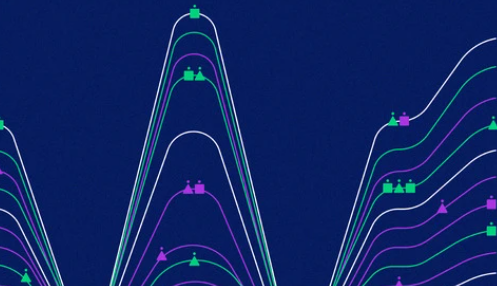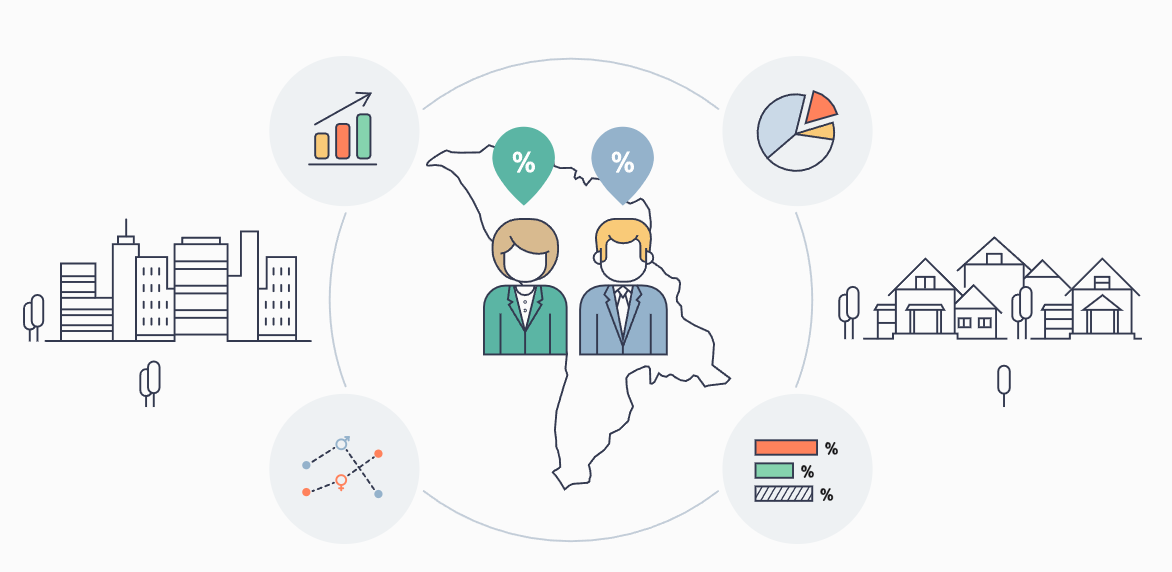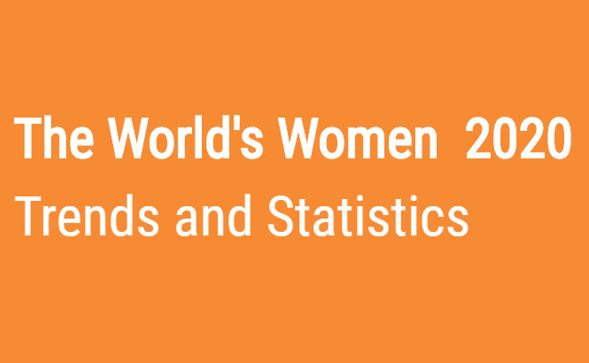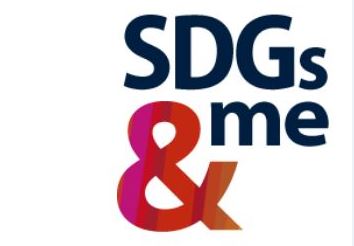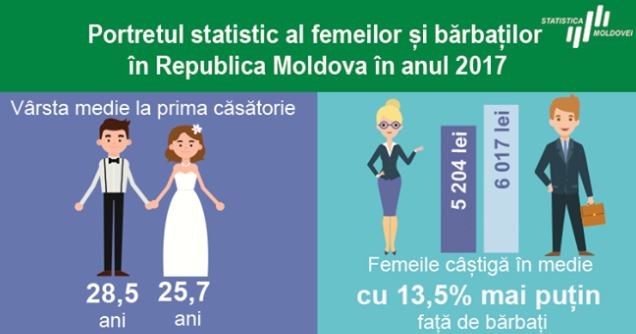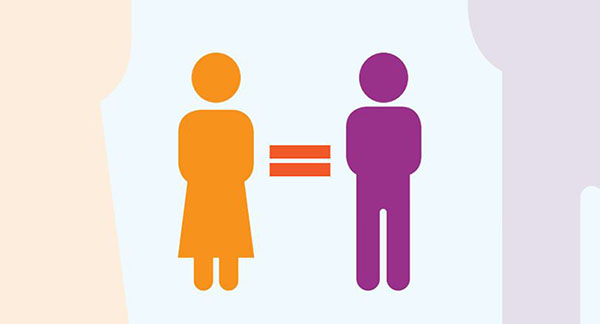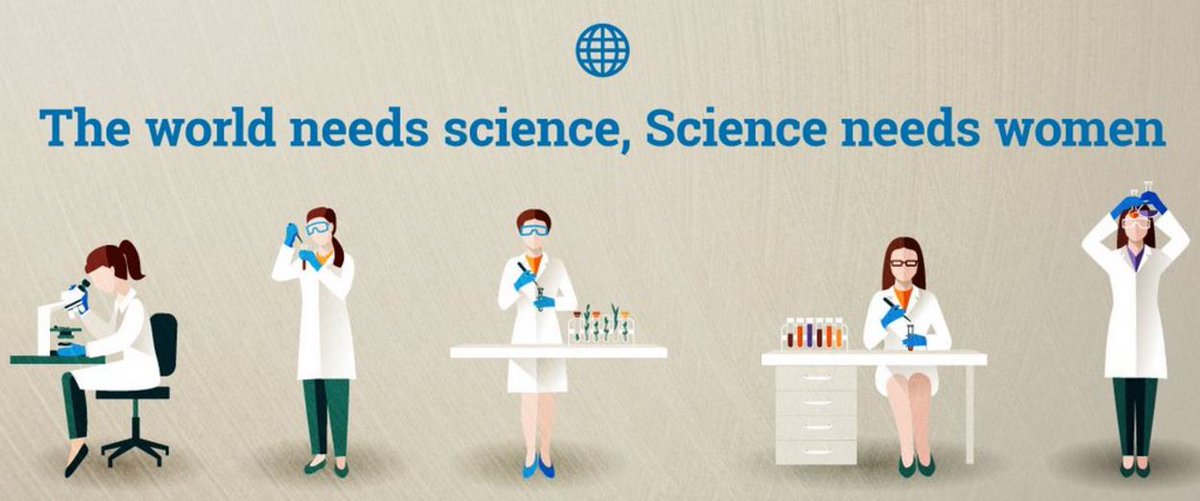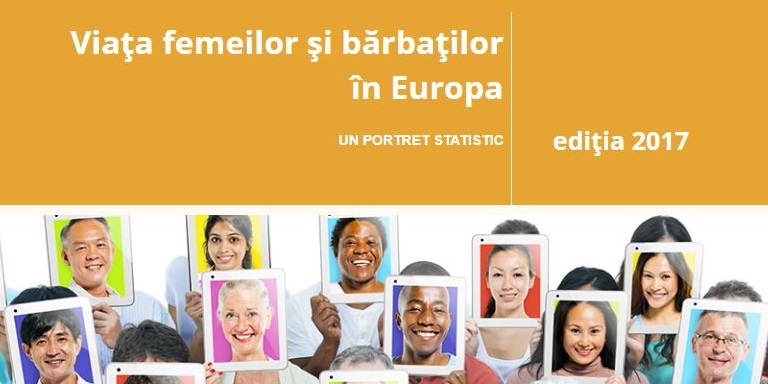The Republic of Moldova makes progress in the Global Gender Gap Index
2025.06.17
473
The Republic of Moldova has achieved, for the first time, a remarkable result in the Global Gender Gap Report 2025 by the World Economic Forum, ranking 7th globally, having closed 81.3% of the gender gap, with an increase of +0.023 points compared to 2024.
Statistical portrait of women and men in the Republic of Moldova
2022.03.07
1,574
The National Bureau of Statistics presents information on the statistical portrait of women and men in the Republic of Moldova based on the latest available data.
The World's Women 2020. Trends and Statistics
2020.10.27
1,708
On the occasion of World Statistics Day, between 19-21 October was held the UN World Data Forum, during which a special session was dedicated to: Assessing progress towards gender equality using innovative approaches. The session focused on the launch of the Women’s World 2020: Trends and Statistics portal, to which the Republic of Moldova also contributed.
Rural women and their difficulties in everyday life
2020.10.15
1,411
The importance and contribution of women from rural areas to the development of society was internationally appreciated by the establishment of the International Day of Rural Women by the UN General Assembly on 15th October. The vulnerability of rural women is explained by the area, conditions in which they live, but also by a number of stereotypes, by the distribution of roles in the family and in society between women and men, which persist particularly in rural communities.
Sustainable Development Goals & Me. Why do the SDGs matter to me?
2019.06.17
2,480
The Sustainable Development Goals, provide a new global policy framework aiming at ending all forms of poverty, fighting inequalities and tackling climate change. They are divided into 17 goals, the topics addressed by them touch many parts of your life, the life of your family and friends as well as your country's future. Explore different goals and learn about the situation of European countries in the latest Eurostat digital publication "SDGs & me".
How different are we? Women and men of Moldova in figures
2019.03.07
3,723
On the occasion of the International Women's Day, the National Bureau of Statistics publishes the Women's and Men's Statistical Portrait in the Republic of Moldova. The main findings show that women live longer than men, get married earlier and have a higher level of training than men. On the other hand, men have a higher employment rate, gain more and predominate at the decision-making level.
Gender Barometer: Women and Men in Politics and Decision-Making
2019.02.22
2,426
The Gender Barometer is the first comprehensive study in Moldova that addresses women's and men's involvement in politics and decision-making. The study was aimed to elucidate gender-specific challenges in politics and the decision making process. Conclusions from the Gender Barometer are based on the achievement of three researches targeting voters, local female and male candidates and elected representatives.
Test your knowledge about gender equality in Moldova!
2018.08.20
2,232
Verify how well you know the situation of women and men in the Republic of Moldova. UN Women has prepared a test for you!
How many women have become Nobel Prize laureates since the beginning of the 20th century by now?
2018.07.05
3,702
Over a century later, little progress has been made reducing the gender gap in science. So far in the 2010s only 9% of winners have been female compared with 88% male (the rest were organisations). Throughout the history of the awards women have been most likely to win a Nobel Prize for Peace and Literature. There has only ever been 1 female winner for Economics and only 2 for Physics.
The life of women and men in Europe
2018.03.23
2,644
There are large differences between the lives of women and men in Europe, but there are also similarities. This digital publication The life of women and men in Europe – a statistical portrait aims at comparing women and men in their daily lives. It also shows how similar or different the everyday life of women and men is in European countries.
